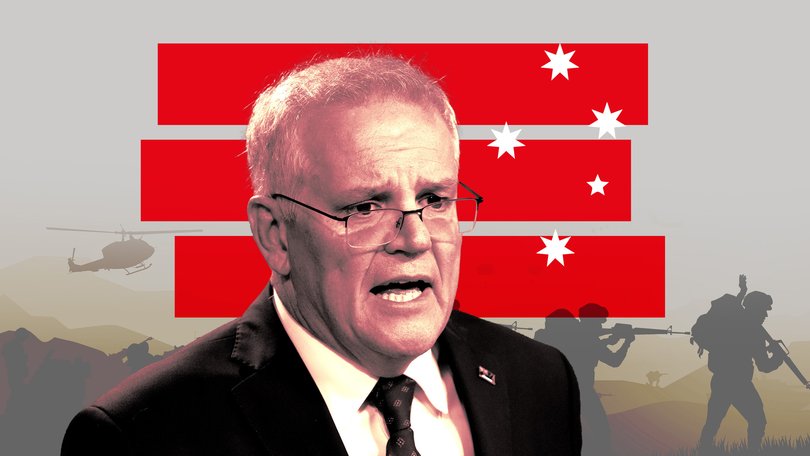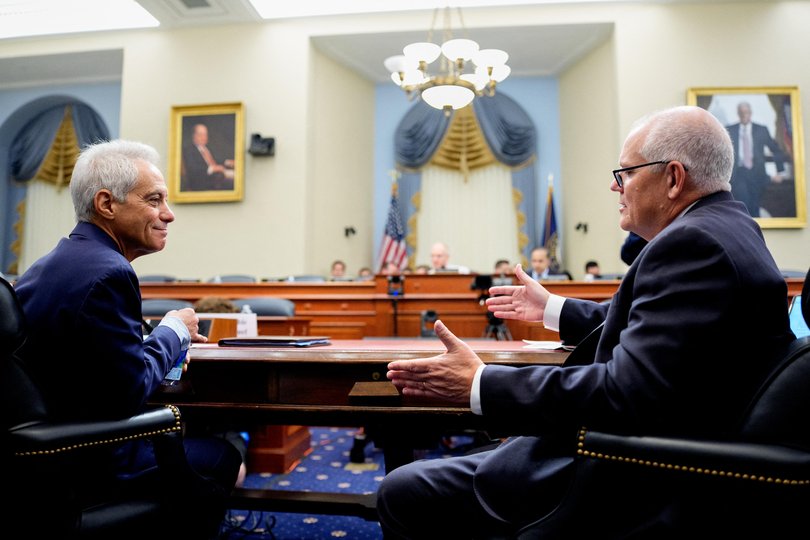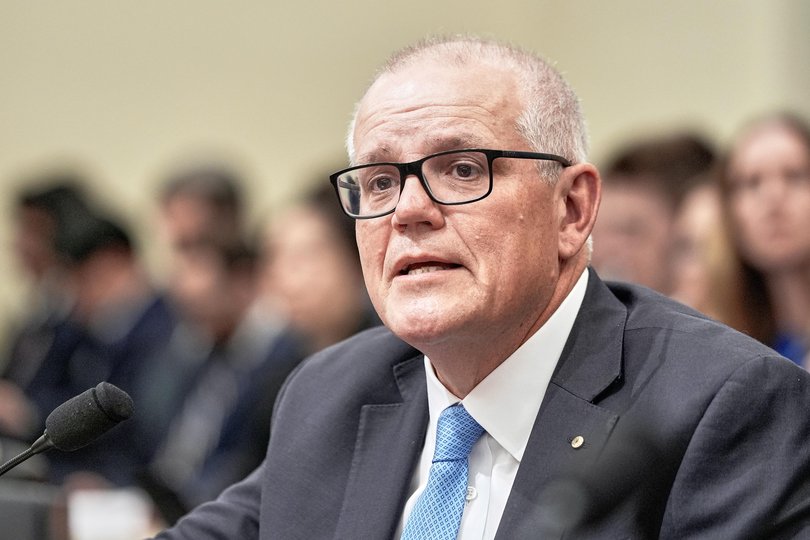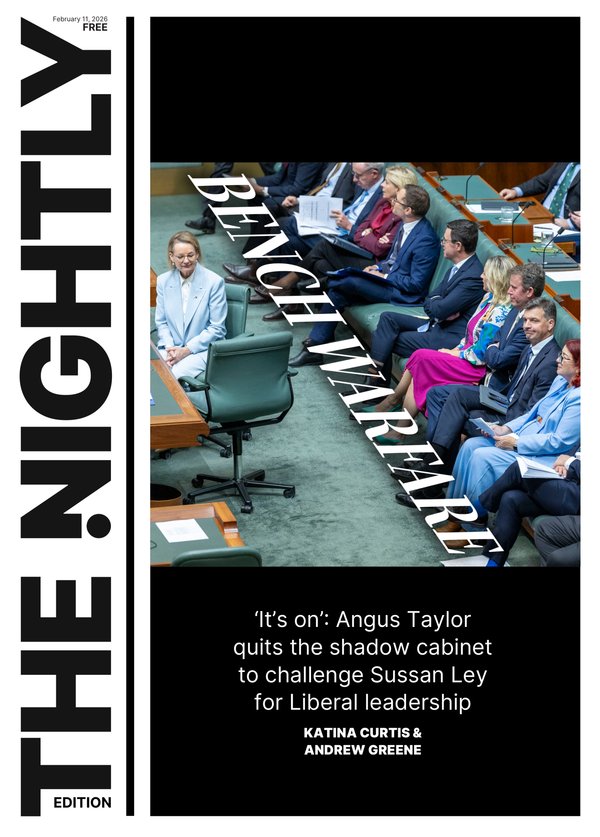China threat: Scott Morrison urges deeper US-Australia ties to counter rising military action
Former Prime Minister Scott Morrison has urged the United States to deepen its alliance with Australia to deter the rising military threat from China, asserting that the PRC ‘regime’ cannot be negotiated away.

Former Prime Minister Scott Morrison has urged the United States to deepen its alliance with Australia to deter the rising military threat from China.
The Chinese Communist party was hoping Western democracies “go to sleep on the threat” posed by its global ambitions and was trying to “neutralise” Australian public support for an increase in defence spending or restricting investment in critical technologies, he said.
Australian public awareness about the threat was “somewhat in jeopardy,” he said, referring to a Lowy Institute poll showing more Australians see China as an economic partner than a security threat.
Sign up to The Nightly's newsletters.
Get the first look at the digital newspaper, curated daily stories and breaking headlines delivered to your inbox.
By continuing you agree to our Terms and Privacy Policy.Mr Morrison made his forthright comments to the US House of Representatives select committee on the strategic competition between the United States and the Chinese Communist Party (CCP), warning members to “never become casual” about the military and economic risks emerging from Beijing.

“The PRC [People’s Republic of China] still continues to engage in intimidatory behaviour by their military against Australia when it suits them without remorse,” he said.
The CCP’s tactics had changed but objectives remained the same, he added, naming the weakening of US alliances and partners in the Indo-Pacific, the non-peaceful absorption of Taiwan and the isolation of US influence as key priorities.
In his statement, the former prime minister did not specifically mention the ongoing Pentagon review of the $368 billion trilateral AUKUS nuclear-powered submarine program but argued for stronger ties between like-minded democracies.
Australia this week paid the US another $800 million instalment for the program, the second this year, despite concerns in Canberra about the outcome of the review led by Pentagon policy chief Elbridge Colby to test the program’s “America First” credentials.
A defence spokesperson said the payment was part of a previously agreed proportionate contribution of US$2b to the United States industrial base, to accelerate US production rates and maintenance to deliver future Virginia class submarines.
Employment Minister Amanda Rishworth told Sunrise the payment schedule showed the Government expects the AUKUS agreement to continue.
“It’s not surprising that the US is reviewing this, but we expect that this agreement will continue … So this was part of the schedule of payments that was always in place when we signed the deal,” she said.
“We have signed an arrangement. We’re committed to that arrangement. We intend to see it through.”
In his testimony to the committee, Mr Morrison said, “while our histories differ, Australia and the US see the world through a similar lens” and had been able to “identify the rising threat from authoritarian states” seeking hegemonic control over their own regions.
“The Chinese Communist Party (CCP) Government of the People’s Republic of China (PRC) is such a regime. This will not change. Nor can it be negotiated away,” he said.
Mr Morrison spoke of his own experience as Prime Minister when China had deployed “targeted illegal trade bans and diplomatic estrangement” costing the economy $20 billion after a dispute over the origins of COVID-19.
“I have no doubt that the primary objective of the PRC’s targeting of Australia during this time was to make an example of Australia as a key US ally in the region. To punish Australia as a warning to others,” he said.
Mr Morrison urged the US Congress members to “double down” on its economic engagement in the Indo-Pacific to counter Beijing’s influence, arguing that economic security was the main priority for many countries in Southeast Asia.
But asked later by journalists about whether President Trump’s punishing tariff regime would push Indo-Pacific countries closer to China, Mr Morrison said he was enacting his election-winning mandate, reported the Australian Financial Review.

Mr Morrison’s intervention created ripples in Canberra on Thursday, just days after Prime Minister Anthony Albanese returned from a six-day trip to China that focused mainly on widening trade and business ties.
“What we’ve committed to is stabilising the relationship with China and restoring $20 billion dollars’ worth of trade, which is all about jobs for Australians and seizing more economic opportunities but having an open dialogue with all our international partners,” said Defence Industry Minister Pat Conroy in response to Mr Morrison’s comments.
“We will cooperate where we can, but disagree where we must,” he said, repeating the Prime Minister’s mantra on China.

